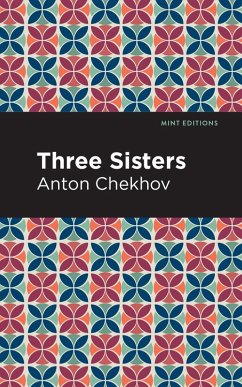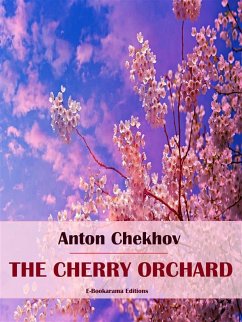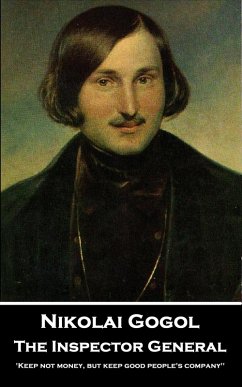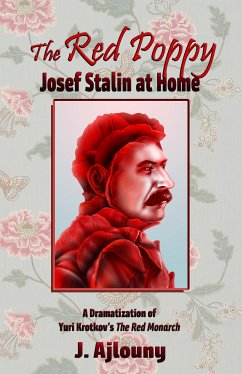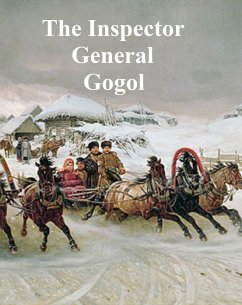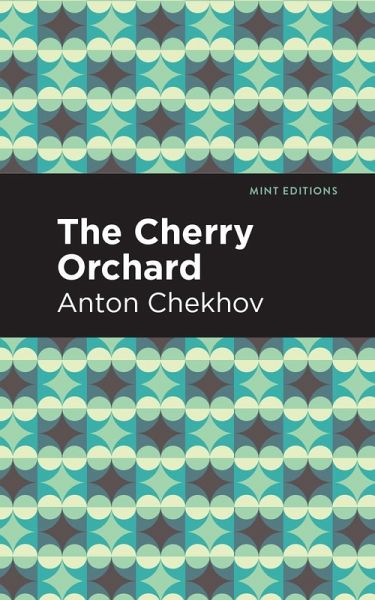
The Cherry Orchard (eBook, ePUB)
Versandkostenfrei!
Sofort per Download lieferbar
3,99 €
inkl. MwSt.
Weitere Ausgaben:

PAYBACK Punkte
2 °P sammeln!
The Cherry Orchard (1903) is Russian playwright and short story writer Anton Chekhov's final play. It was first performed at the Moscow Art Theatre in 1904, directed by acclaimed actor Konstantin Stanislavski-who also played the role of Leonid Gayev, the bizarre and uninspired brother of Madame Ranevskaya. It has since become one of twentieth century theater's most important-and most frequently staged-dramatic works.After five years of living in Paris with her lover-where she fled following the death of her young son-Madame Ranevskaya is brought back to her Russian estate by her daughter Anya....
The Cherry Orchard (1903) is Russian playwright and short story writer Anton Chekhov's final play. It was first performed at the Moscow Art Theatre in 1904, directed by acclaimed actor Konstantin Stanislavski-who also played the role of Leonid Gayev, the bizarre and uninspired brother of Madame Ranevskaya. It has since become one of twentieth century theater's most important-and most frequently staged-dramatic works.
After five years of living in Paris with her lover-where she fled following the death of her young son-Madame Ranevskaya is brought back to her Russian estate by her daughter Anya. In her absence, Varya, Ranevskaya's adopted daughter, has cared for the estate to the best of her ability, but the family's debts have forced them to put the house and its renowned cherry orchard up for auction. Leonid Gayev, Madame Ranevskaya's brother, hopes to keep the estate, while Yermolai Lopakhin-a wealthy neighbor despite being born a peasant-encourages the family to sell. Although they initially shelter Madame Ranevskaya, she soon discovers the truth and decides-against the family's wishes-to throw a party none of them can afford. As the play reaches its tragic conclusion, the wealthy are forced to acknowledge their circumstances have changed, and the characters who depend on them for employment must do what they can to survive. The Cherry Orchard is a powerful drama that takes an unsparing appraisal of the massive shift in political and social circumstances undergone by Russians in the early twentieth century.
This edition of Anton Chekhov's The Cherry Orchard is a classic of Russian literature reimagined for modern readers.
Since our inception in 2020, Mint Editions has kept sustainability and innovation at the forefront of our mission. Each and every Mint Edition title gets a fresh, professionally typeset manuscript and a dazzling new cover, all while maintaining the integrity of the original book.
With thousands of titles in our collection, we aim to spotlight diverse public domain works to help them find modern audiences. Mint Editions celebrates a breadth of literary works, curated from both canonical and overlooked classics from writers around the globe.
After five years of living in Paris with her lover-where she fled following the death of her young son-Madame Ranevskaya is brought back to her Russian estate by her daughter Anya. In her absence, Varya, Ranevskaya's adopted daughter, has cared for the estate to the best of her ability, but the family's debts have forced them to put the house and its renowned cherry orchard up for auction. Leonid Gayev, Madame Ranevskaya's brother, hopes to keep the estate, while Yermolai Lopakhin-a wealthy neighbor despite being born a peasant-encourages the family to sell. Although they initially shelter Madame Ranevskaya, she soon discovers the truth and decides-against the family's wishes-to throw a party none of them can afford. As the play reaches its tragic conclusion, the wealthy are forced to acknowledge their circumstances have changed, and the characters who depend on them for employment must do what they can to survive. The Cherry Orchard is a powerful drama that takes an unsparing appraisal of the massive shift in political and social circumstances undergone by Russians in the early twentieth century.
This edition of Anton Chekhov's The Cherry Orchard is a classic of Russian literature reimagined for modern readers.
Since our inception in 2020, Mint Editions has kept sustainability and innovation at the forefront of our mission. Each and every Mint Edition title gets a fresh, professionally typeset manuscript and a dazzling new cover, all while maintaining the integrity of the original book.
With thousands of titles in our collection, we aim to spotlight diverse public domain works to help them find modern audiences. Mint Editions celebrates a breadth of literary works, curated from both canonical and overlooked classics from writers around the globe.
Dieser Download kann aus rechtlichen Gründen nur mit Rechnungsadresse in A, D ausgeliefert werden.




